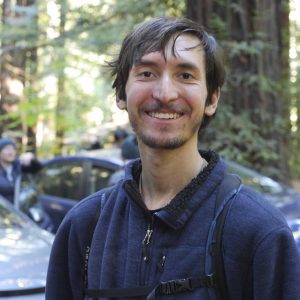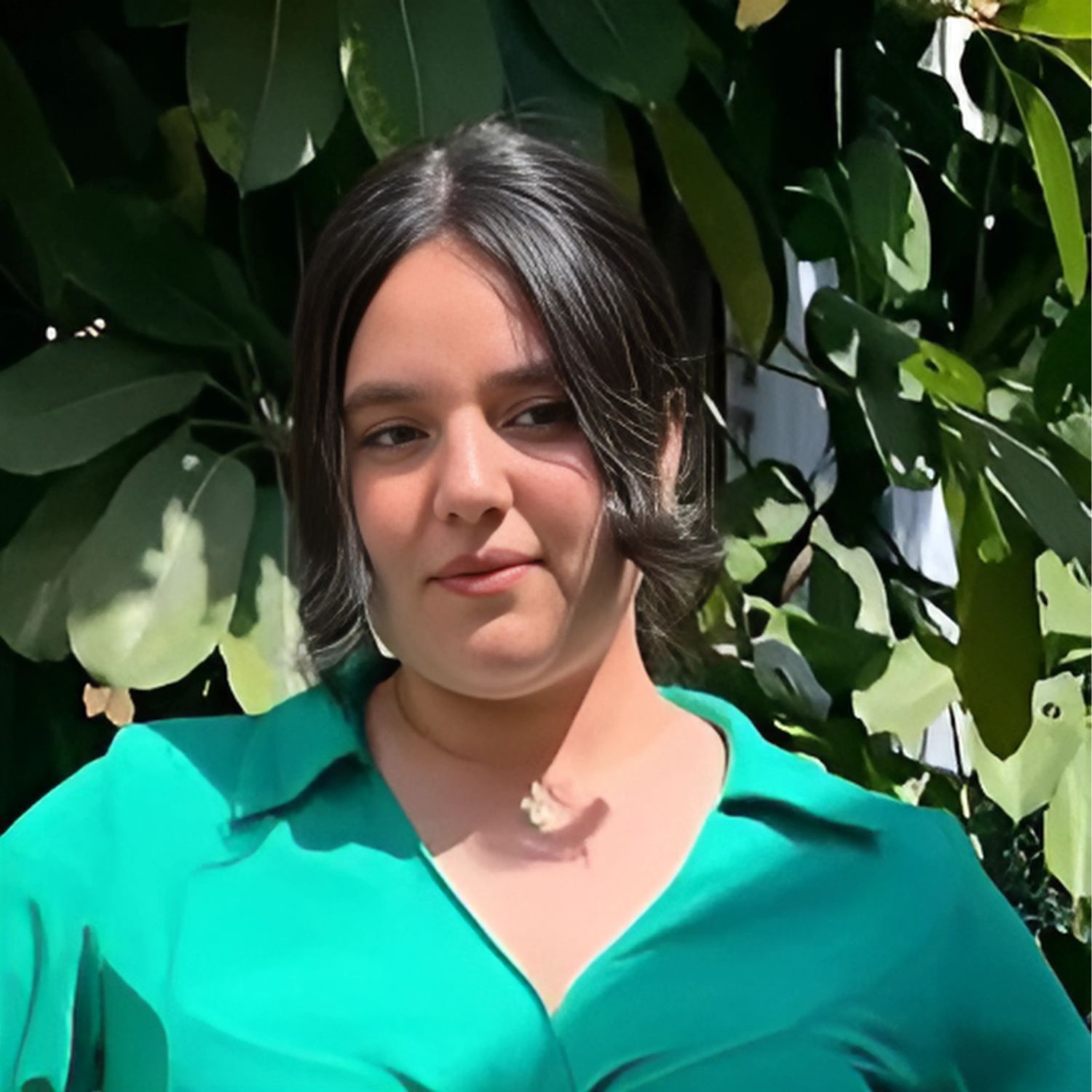
What were you doing before DRBU?
I was nurturing creative projects and wandering.
What is an influential class, book, or concept that blew your mind?
The Surangama Sutra. I’m not sure I can really articulate why yet, but it scares and excites me and gives me perspective about paths of spiritual practice and where they can lead.
Can you tell us the title of a recent paper? What is it about?
“How?”
It’s a close reading of the burning house metaphor in the Lotus Sutra, where children are playing in a dilapidated house that suddenly starts burning. Their father convinces them to give up their play inside the house and come out to safety by telling them there are really cool toys outside, and those toys turn out to be the three “vehicles” of Buddhism that they master and that carry them to states of awakening.
What is it really about?
I was noticing that many of the things that had entertained, excited, and interested me no longer seemed to have the same hold over me. Many of the ways I had constructed my identity before DRBU were being dismantled, and it sometimes grated at me to have the momentum of wanting to, say, watch a TV show, but realizing that I’d actually prefer to give it a pass. I was afraid that I would get bored, but the answer I found in the burning house metaphor was that I’m just switching out one set of toys for another. Instead of feeling sad about the TV, video games, news, addictive reading, etc. that I was giving up, I could be excited about the opportunities I was gaining because of what I was giving up: more peace, ease of mind, better health, and more fulfilling friendships. It helped me see that the path is play all the way through.
How has DRBU changed you? Are there any surprising things you learned or challenges you faced?
DRBU has given me an environment and context for developing in practice and developing a roadmap for the journey ahead. On the practice side, my body’s been purging itself of tension (first semester: lower back; second: upper back; third: neck, in progress). I’ve been noticing increasingly more freedom of mind, but I had to pass through a lot of pain to get here. The texts and discussions here have opened me up from being focused on my own secular-psychoanalytical interpretation of things to really being able to accept and start to enter into other ways of viewing the world.
What does contemplative practice mean to you? Do you have a daily practice?
Contemplative practice was very important to me for a couple years leading up to DRBU during a mysterious chronic illness. Practice seemed necessary to feel okay in my mind. Now I practice because I appreciate the subtle shifts it’s making to my mind over time.
When I came to DRBU, I had a daily practice of writing, ashtanga yoga, pranayama, Feldenkrais, yoga nidra, and meditation. These days I’ve consolidated into vipassana meditation, yoga, and art. One aspect I’ve found really important to my DRBU experience has been doing meditation retreats during the winters and summers. It helps me to transform a bit each off-season, then consolidate and continue to grow within community during each semester.
What’s it like to be a part of the DRBU community? What do you do outside of class?
Wake up early, go do yoga with a buddy, stop by for tea time before breakfast. Go to class, do service scholarship work, write in the evening, meditate at night. Sing and play ping pong.
Can you share a memory of a quintessential DRBU moment with us?
Here’s a list:
- Shifting music tastes: my Spotify 2022 Wrapped list will be dominated by relaxing Indian flute music
- Group meditation before class
- People sitting with their eyes closed in class, but they’re not sleeping, they’re meditating
- Confronting my deep fears and inadequacies, bit by bit, most days of the week, until I realize I feel consistently lighter and happier, and that it hasn’t always been that way
- Thinking I’m all high and mighty and then realizing it’s a big ego that’s been blinding me from other people’s wisdom
- Being a minority in my cohort as a white man
- Peacocks everywhere
- Chopsticks all the time
How has financial aid played a role in your being at DRBU? What’s your service scholarship (work study) job?
[Financial aid has been] very important in reducing my worries so that I can mostly focus on being here. [My] service scholarship is chef, literary magazine editor, student activities/outreach, farmhand, [and] cleaning tasks.
What are you interested in doing after DRBU?
I’m not sure, but I’m confident in the path I’m excavating by studying and practicing here. I’ll probably continue working on art and developing in my meditation practice. I came in with the goal of writing to heal the world; now I see how much I have to heal myself to be able to write the kinds of stories I’d like to write. I think it’s important to me to keep writing fiction (and hopefully make it my work) as I go through this process, because it helps me be honest with myself about where my mind is at, and can probably help some others find their way.
What would you say to someone who is thinking about applying to DRBU?
This is a sort of half-way house. Living here is like being half-way monastic and half-way layman. If you’re interested in establishing a firm basis for living in either of those paths and want to try something in-between to figure out your life’s direction, this could be a good fit. In general, if you’re willing to slow down, reduce your needs, and engage in a process of self-examination that can be painful, this may be a good place.


